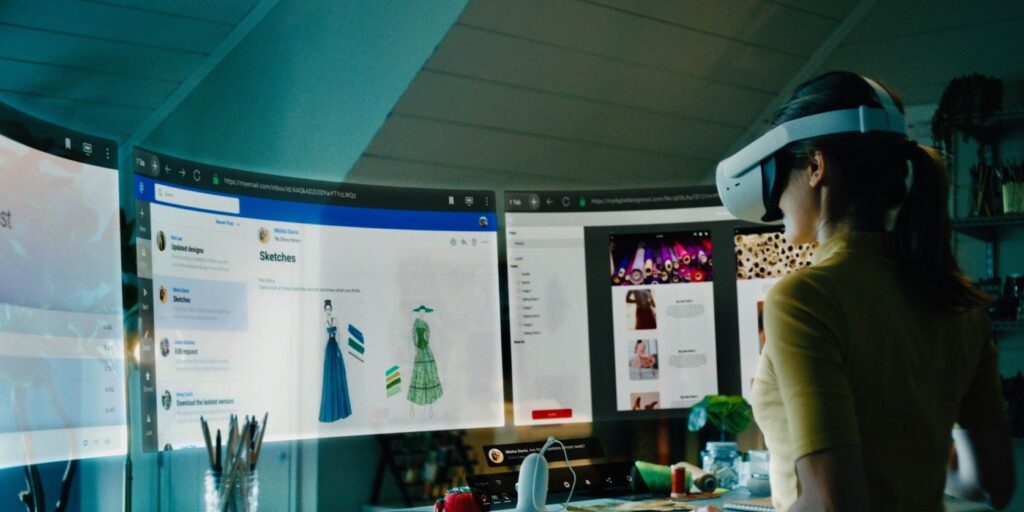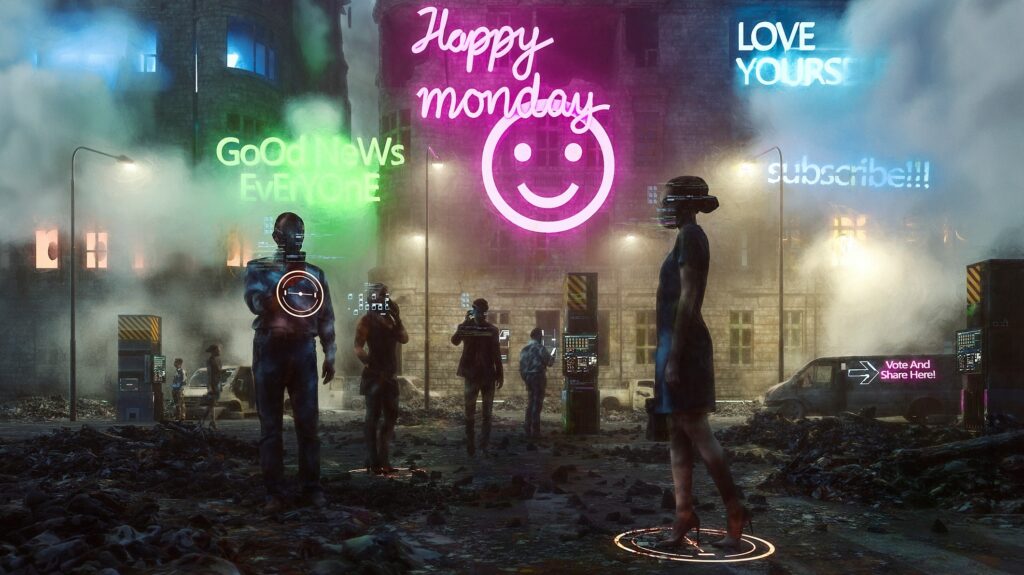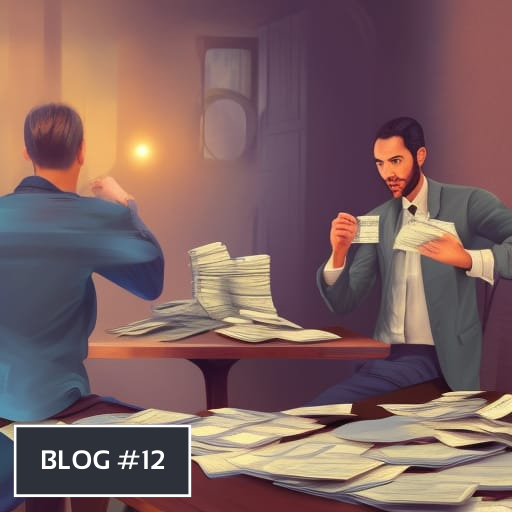Introduction
This week we saw Facebook rebrand to Meta, to fit more in line with the future vision of the emerging metaverse. Facebook already had ¼ of its staff working on AR and VR projects, and recently announced an additional 10,000 jobs in the EU to support the building of the metaverse, which it sees as the future of the internet and online interaction. While some see the move as taking a position on the future, others note it as a timely shift to focus away from the growing negativity of social media and Facebook.

What is The Metaverse?
Though the metaverse is still a long ways off, in Mark Zuckerberg’s keynote speech, we got a solid look at what Facebook’s vision for this new space is. Mark explains the historical path we have taken to the metaverse. Communication has moved from voice, to text to pictures to video. Desktop to web to phones. And now the next iteration is going to be an immersive experience. It will be the successor to the mobile internet, an ‘embodied internet.’
It will require a range of technologies to function, VR and AR being the two most obvious as the main way of accessing the metaverse, but blockchain, cryptocurrency, 5G, AI etc will be central. It will provide not just a way to share information like most social media today, but also experiences, like games, meetings, and new forms we might not yet be aware of. And most importantly there will be a sense of presence that we will have with the other people that we interact with. And all of this can be tied together within an active economy where goods and services are sold and purchased much like the internet of today.
I think an interesting part of all this is that the boundaries between the real world and the metaverse will start to degrade. Mark talks about bringing different things like pictures, videos and art into the metaverse, but also being able to bring things from the metaverse into the real world, like digital art that can only be accessed from a certain physical location. Facebook’s vision seems to build upon the ideas of popular programmes like Pokemon Go which already exists as a form of mixed reality. And this is actually one of the critiques of the metaverse as proposed by Facebook, its that many of the ideas aren’t actually very new, but rather they are presenting it as if it were, and indirectly taking credit for something that they did not solely imagine or build.
For those of you that hold little faith in FB, the good thing is that the metaverse will not be owned by Facebook. The places that FB is building will simply be one of several different spaces that will be accessible, though definitely one of the more important ones as the Whatsapp, Instagram, Facebook etc will of course have built in transitions into the space of the metaverse, and the keynote clearly gave us some images of what that would look like.

What Will The Impact On Jobs Be?
The most obvious impact that the metaverse will have on jobs is that new ones will be created.
Technology needs to be further developed to access the metaverse; hardware like AR/VR glasses, and the apps, spaces, and ecosystems in the metaverse need to be built by creators and developers, part of the reason why 10,000 new employees will be hired in Europe by Facebook.
Mark also lays out a few key parts of the metaverse which will play large roles for new job opportunities:
- The first and largest, gaming, which was also discussed in my conversation on the virtual economy with Giorgio Tarraf, was presented in the keynote as a series of social games like chess, and ping pong but with digital avatars facing you rather then staring at a screen to compete with friends. Additionally. a number of new VR games were presented that are available on quest, and hinted at becoming more immersive and interactive as time goes on. As the gaming industry continues to expand, expecting to hit 200$ billion by 2024, it is easy to see that at least a proportion of gaming will shift into the metaverse and away from screen based interaction.
- Remote work. Following the clear trend from the pandemic of people working from home, the keynote tapped into the ability to interact in a more immersive way with colleagues from across the world. However, this is far from a new idea. Microsoft earlier this year presented Microsoft Mesh which essentially will do the same thing. So again, the metaverse needs to be seen as not a singular Facebook initiative but one that is being built by several organisations. A good example of this are several product design teams which used VR headsets during the lockdowns to help collaboratively visualise what they were working on while working from home. So aspects of this are already in play.
- A new ecosystem for product creation. One of the things most challenging things to imagine with the metaverse is the idea of building products within it. The keynote did a great job of explaining the interoperability of content, such as buying a new skin for your avatar and being able to use it across the metaverse, rather than say, just in the game where you bought it as it is today. This is already an idea that is growing within the NFT market, where certain purchasable unique items are transferred between games. But the metaverse idea takes this to a new level which goes beyond gaming, which will open up a creative space/economy where digital product creators can earn a living, and new businesses will be built to take advantage of this. Depending on the size of this, it could be that a substantial portion of the global economy in the future could only partially be connected to the real world, while the rest exist exclusively in this new digital frontier. I think the online ecosystems that we have today, like online communities that use social media to communicate, are really only the start of this trend.
- Elaborating upon the previous point, of entirely new businesses and work being generated for the metaverse, we are already seeing entirely new forms of work popping up. One of the more unique examples is in the form of “play to earn”, as with the Axie Infinity blockchain game. Players earn rewards in a form of cryptocurrency tokens, which can then be exchanged for real money, and there are even people in lower income countries who have made this their main form of income. Though this NFT based game is still in the early phases there are a number of these games that are already available and being further developed and could be incorporated into the metaverse to enable self-sustaining digital economies…but again, this is still a few years away.
Though these new spaces or worlds are being created is a very exciting venture, they probably won’t develop without some issues, and the privacy issue has been front and center for a long time.

Problems With The Metaverse
It has been argued that one of the principal reasons that Facebook initially got involved in VR was due to the massive amount of new data that could be collected, namely biometric data. American VR researcher Jeremy Bailenson has written:
“commercial VR systems typically track body movements 90 times per second to display the scene appropriately, and high-end systems record 18 types of movements across the head and hands. Consequently, spending 20 minutes in a VR simulation leaves just under 2 million unique recordings of body language.’
And as everyone has a unique way of moving, all of this data can be used to identify you, like a fingerprint. So anything that you do in the metaverse through VR or AR devices could very easily trace back to your individual identity. The fundamental idea of privacy in the metaverse would in essence be significantly altered from the real world. This is a massive issue especially in light of some of the information coming out of the recent Facebook whistleblower reports.
For anyone who hasn’t paid close attention to the Facebook whistleblower account, one of the more relevant things to come out of it was how Facebook deals with known social impacts. “A central problem the Facebook papers laid bare is that Facebook often conducts its own internal research into problems on the platform, then abandons them. In one damning example, researchers showed how Instagram has insidious effects on teenage girls, perpetuating mental health conditions like anorexia, but the company buried the results and did not change its policies in response.
(Documentaries like the Social Dilemma, and people like Jonathan Heidt, Jaron Lanier, and others talk the problems caused by social media in general in greater depth if you want to look into this further.)
And as facebook showed no signs of stopping or changing practices, it is fair to assume that the same issues will be present in the Metaverse. The keynote presentation did overtly have a section about building the metaverse with regulators and incorporate privacy and security measures directly into the design, but a new corporate name and hour long keynote shouldn’t make people think differently in my point of view.
The final point that compounds these issues is that the stakes will be higher in the metaverse than they are in today’s social media platforms, specifically due to the more realistic interactions we will be having. In my conversation with Howard Rose of First Hand Technology, it was pointed out that the images and experiences we have in a virtual world are quite ‘real’ to our minds and have a much more lasting effect than those on social media. For example, we are aware of the strong psychological impact of advertising when it is consumed only via text, pictures, and videos, but it is still unknown to what further extent that impact will be in a VR environment. Advertising is one thing, but being in VR experiences is another. The perfect example of this is the emotional viral video of the Korean mother reunited with the digital copy of her deceased daughter in VR.
Though the point of “privacy and safety need to be built into the metaverse from day one” was mentioned early in Facebook’s keynote. A large reveal that Grand Theft Auto will be releasing on the quest seems to fall contrary to the initial idea, as the game is notoriously known for brutal and violent actions performed by many players. If this is to be done in VR the psychological ramifications might be quite extreme, especially for younger users.
These points taken as a whole should at the very least bring some caution to the overall optimism and excitement about this ambitious project. I personally think the idea of a metaverse is fascinating, and if implemented will change society as much as the introduction of smartphones did over a decade ago, but it will need to be designed and built with these problems in mind.
(For more critiques of Meta check out an interesting take from Chamath Palihapitiya : https://youtu.be/ctLbqX3R0kI?t=3848 )
Is the Metaverse Something That We Even Want?
Over the last week, I’ve had a number of discussions with friends and people both inside and outside the world of technology. Most I find even doubt whether this is even something that is desirable or worth having. Perhaps the negative perception of social media and technology overall have already grabbed hold of people and have steered people towards skepticism more than excitement.
It is of course a fascinating idea technologically speaking, but the apparent benefits seem to be drowned out by the negative possible repercussions.
At the outset of the keynote, Mark claims that the goal isn’t to have us on our screens for longer periods, but rather to make the time that we are on our screen more enjoyable. It is to make the way we interact online more natural. Which seems to presume that these interactions will be more enjoyable, less stressful, and improve our ability to communicate overall. There are also mentions connected to collaboration, decentralisation, and of course economic opportunity.
Final Thought
All of this is great in theory, but the ultimate question needs to be posed of whether or not the metaverse will bring about a net benefit or net harm to our society which seems to be struggling with large issues of growing ideological polarisation, economic frustration, and uncertainty of the future in the face of the pandemic. But then again, perhaps a new ecosystem where less anonymous and more immersive interaction exists will enable the breakdown in conversation to be resolved. It just seems that Facebook might not be the best choice to build out that future..







